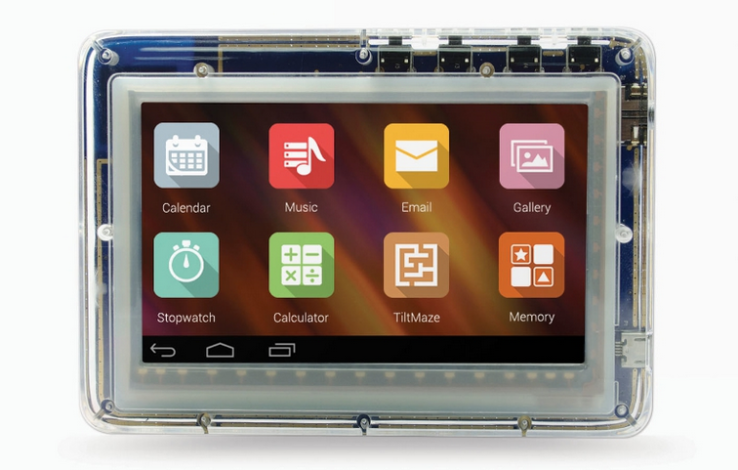
Private corrections service JPay introduced the JP5mini tablet last week, a tablet made specifically for the nearly two million incarcerated Americans that the company services in correctional facilities across 34 states.
There are currently over 60,000 of the company’s previous generation JP4 tablets being used in prison’s today. A major update of this newer device is its ability to connect to wireless networks, which many prisons are beginning to implement.
At face value, the device seems to be a pretty great deal. The Android-based tablet is $70 and despite having a pretty small screen (4.3 inches), the device has 32 gigabytes of storage standard. Through the device, inmates have access to music, email, video chat and more.
Inmates aren’t exactly tuning into Spotify on these devices and listening to whatever they want. Music is policed and censored for overly violent lyrics according to Ryan Shapiro, CEO of JPay, but this is done at the discretion of the facility.
Creating a device to be sold in prisons exclusively obviously entails security risks that need to be accounted for. JPay definitely deals with some unique problems and has had to create some specialized workarounds to ensure that the devices aren’t used as weapons or as vehicles to smuggle illegal items.
“All of our tablets are constructed out of clear, polycarbonate plastic to ensure no contraband is brought into the prisons through the device,” Shapiro said. “The JP5mini was built with a secure boot loader so no other operating system could be installed, ensuring that an inmate doesn’t manipulate the system in any way.”
In a 2012 profile, Bloomberg called JPay the Apple of the U.S. prison system. Indeed, JPay’s technological reach in prisons is far more expansive than simply selling devices. JPay is increasingly taking over the communications technologies of facilities across the country and is also one of the primary means by which family members send money to inmates.
JPay has faced a lot of criticism for excessive fees and is no stranger to controversy caused by its rather stringent terms and conditions, though they have recently gotten rid of language which maintained that they assumed intellectual property rights for all communications produced by prisoners on their devices.
Prisons are obviously a tough place to provide services, and easier access to media that inmates would otherwise not have is definitely a good thing. Building and selling these devices to inmates plays into a larger vision for JPay according to Shapiro.
“Our mission is to educate and rehabilitate offenders to reduce recidivism,” Shapiro said in an email interview with TechCrunch. “Technology plays a vital role in corrections and we’re proud to offer tablets that keep people connected and help inmates become productive members of society once released.”

